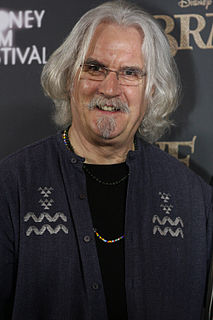A Quote by Tony Kushner
I don't want to name names because they'd be mad at me if I did, but people who are significant novelists can't get published by real publishers at this point, or have to go through two years of trying after writing a novel that's taken them five or six years and simply can't get the thing in print. Or it gets in print and it doesn't get reviewed in the New York Times Book Review and disappears without a trace. I mean, it's terrifying. I don't know how anybody can stand it. It's such an enormous amount of work and the economics of it are really quite brutal.
Quote Topics
After
Amount
Anybody
Because
Book
Book Review
Brutal
Did
Disappears
Economics
Enormous
Five
Get
Gets
Go
How
Know
Know How
Mad
Me
Mean
Name
Names
New
New York
New York Times
Novel
Novelists
People
Point
Print
Published
Publishers
Quite
Real
Really
Review
Significant
Simply
Six
Stand
Taken
Terrifying
Them
Thing
Through
Times
Trace
Trying
Two
Two Years
Want
Without
Without A Trace
Work
Writing
Years
York
Related Quotes
Stephen King writes mass fiction but gets reviewed by the New York Times and writes for the New Yorker. Critics say to me, "Shut up and enjoy your money," and I think, OK, I'll shut up and enjoy my money, but why does Stephen King get to enjoy his money and get reviewed on the cover of the New York Times Sunday Book Review?
I’ve come in and out of America for… well, I’ve lived here for 15 years. And I’ve played here for nearly 30 years. On and off. But I’ve always played to my fan base. And I can come and do two or three nights in New York or two or three nights in L.A., and all that. But when I go away, nobody knows I’ve been gone. You know, I don’t get reviewed or anything like that. So that’s why I’ve come back and done a longer time in a smaller place, in New York. It’s always the people who live here that get a chance to know me.
No, and in fact I get a bit frustrated, because I'm actually quite good at one-liners, and I've had hundreds of them over the years, and they sink without trace, and I get very frustrated. Every party conference I really work on the speeches, and I always have two or three things I'm quite proud of, and no one ever remembers them.
I always thought that digital first was a simplistic notion, and I am not even sure quite what it means. It should be stories first. Let's take the Paris story: the New York Times covered it all day, we held nothing back. Everything we learned, we published online. Then, when you approach your print deadline, you have to do two things. You have to polish those stories that are online because print is less forgiving of mistakes. Secondly, in an ideal world, you pick one thing that will feel fresh and compelling to people in the morning when they pick up the print paper.
After I got divorced, I said to myself, I will never, ever get married again. It was in cement. I went through a really rough twenty-five years, but it happened again. I fell in love. I told her, Baby, I don't want a prenuptial agreement. This is it. Everyone told me I was nuts. Well, my new wife and I are married six years and we get along great. You can make anything work if you're both givers.
A writer writes a book. People read it. You don't know what they're reading, really. You read a review and think, "That is so inaccurate. You can't have been reading my book with any kind of attention, because that is all wrong, that's even the wrong name you're including there." But these reviewers have been diminished in importance, the work is so little respected. If you're reviewed by a real critic, by James Wood or Louis Menand, then you get something that is informed, interesting, and highly articulate. But the average review doesn't have that kind of depth anymore.
You can't have a novel without real, believable people, and once you get into either too theoretical a novel or too philosophical a novel, you get into the dangers that the French novel has discovered in the past 50 or 60 years. And you get into a sort of aridity. No, you have to have real, identifiable people to whom the reader reacts in a way as if they were real people.
If anyone ever wonders why there's nothing coming from me, it's not my fault. I'm doing the work. No, I haven't deteriorated or gone insane. Suddenly, I just can't get anything into print. And apparently I'm not alone in this. There are people of very high standing, authors who are having problems. So I have been told. In my own case, the more disturbing element is the editor-in-chief who said to me, "I think this book is terrific. It ought to be in print. I can't publish it -- I've been told I mustn't." The indication is that I'm not writing what people want to read, but I never did.
Writing a novel is a very hard thing to do because it covers so long a space of time, and if you get discouraged it is not a bad sign, but a good one. If you think you are not doing it well, you are thinking the way real novelists do. I never knew one who did not feel greatly discouraged at times, and some get desperate, and I have always found that to be a good symptom.






































